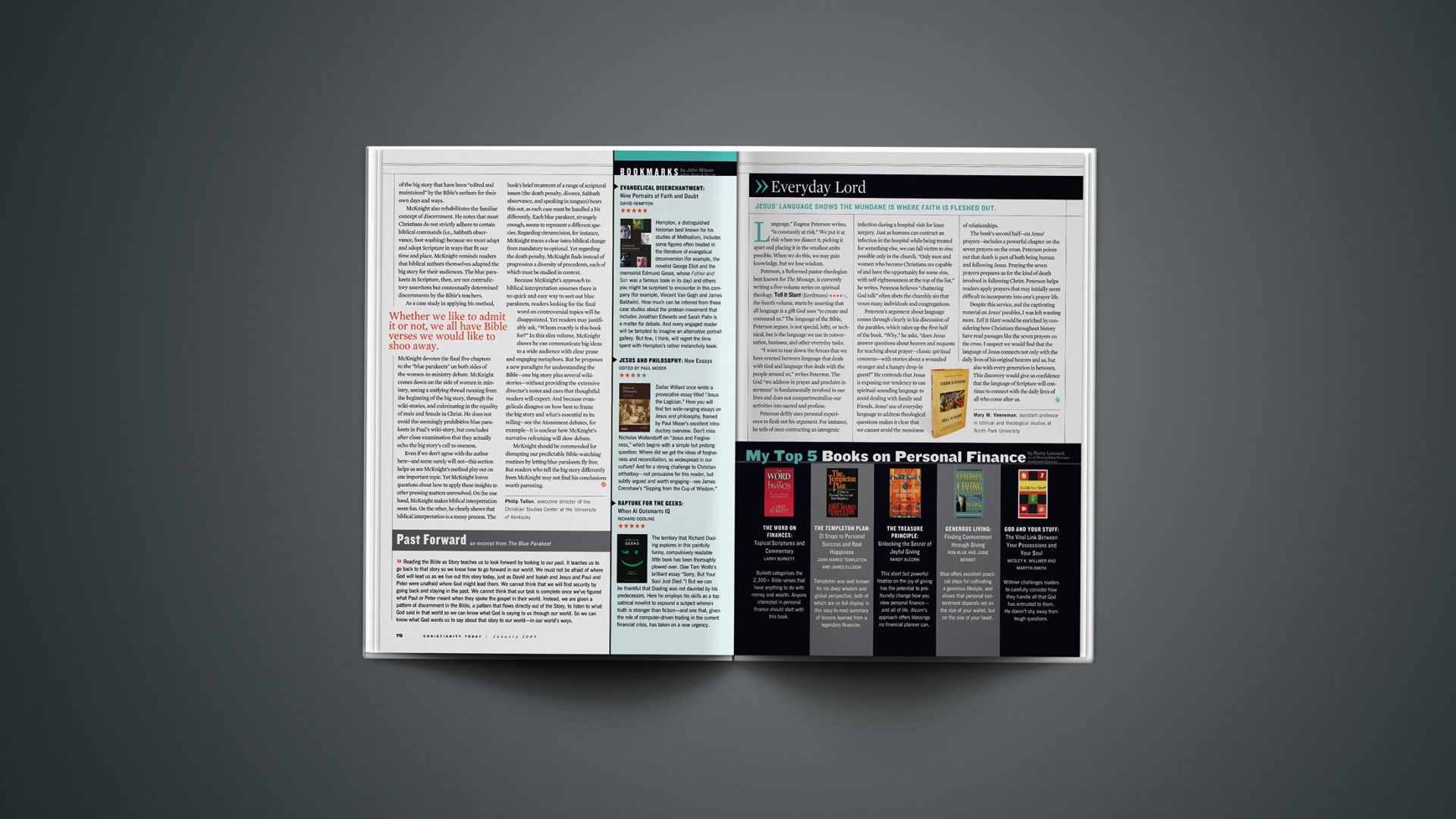“Language,” Eugene Peterson writes, “is constantly at risk.” We put it at risk when we dissect it, picking it apart and placing it in the smallest units possible. When we do this, we may gain knowledge, but we lose wisdom.
Tell It Slant: A Conversation on the Language of Jesus in His Stories and Prayers
Eerdmans Publishing Company
304 pages
$26.97
Peterson, a Reformed pastor-theologian best known for The Message, is currently writing a five-volume series on spiritual theology. Tell It Slant (Eerdmans), the fourth volume, starts by asserting that all language is a gift God uses “to create and command us.” The language of the Bible, Peterson argues, is not special, lofty, or technical, but is the language we use in conversation, business, and other everyday tasks.
“I want to tear down the fences that we have erected between language that deals with God and language that deals with the people around us,” writes Peterson. The God “we address in prayer and proclaim in sermons” is fundamentally involved in our lives and does not compartmentalize our activities into sacred and profane.
Peterson deftly uses personal experience to flesh out his argument. For instance, he tells of once contracting an iatrogenic infection during a hospital visit for knee surgery. Just as humans can contract an infection in the hospital while being treated for something else, we can fall victim to sins possible only in the church. “Only men and women who become Christians are capable of and have the opportunity for some sins, with self-righteousness at the top of the list,” he writes. Peterson believes “chattering God talk” often abets the churchly sin that vexes many individuals and congregations.
Peterson’s argument about language comes through clearly in his discussion of the parables, which takes up the first half of the book. “Why,” he asks, “does Jesus answer questions about heaven and requests for teaching about prayer—classic spiritual concerns—with stories about a wounded stranger and a hungry drop-in guest?” He contends that Jesus is exposing our tendency to use spiritual-sounding language to avoid dealing with family and friends. Jesus’ use of everyday language to address theological questions makes it clear that we cannot avoid the messiness of relationships.
The book’s second half—on Jesus’ prayers—includes a powerful chapter on the seven prayers on the cross. Peterson points out that death is part of both being human and following Jesus. Praying the seven prayers prepares us for the kind of death involved in following Christ. Peterson helps readers apply prayers that may initially seem difficult to incorporate into one’s prayer life.
Despite this service, and the captivating material on Jesus’ parables, I was left wanting more. Tell It Slant would be enriched by considering how Christians throughout history have read passages like the seven prayers on the cross. I suspect we would find that the language of Jesus connects not only with the daily lives of his original hearers and us, but also with every generation in between. This discovery would give us confidence that the language of Scripture will continue to connect with the daily lives of all who come after us.
Mary M. Veeneman, assistant professor in biblical and theological studies at North Park University
Copyright © 2009 Christianity Today. Click for reprint information.
Related Elsewhere:
Tell It Slant is available at ChristianBook.com and other book retailers.
Christianity Today has other book reviews on a section of our website.











